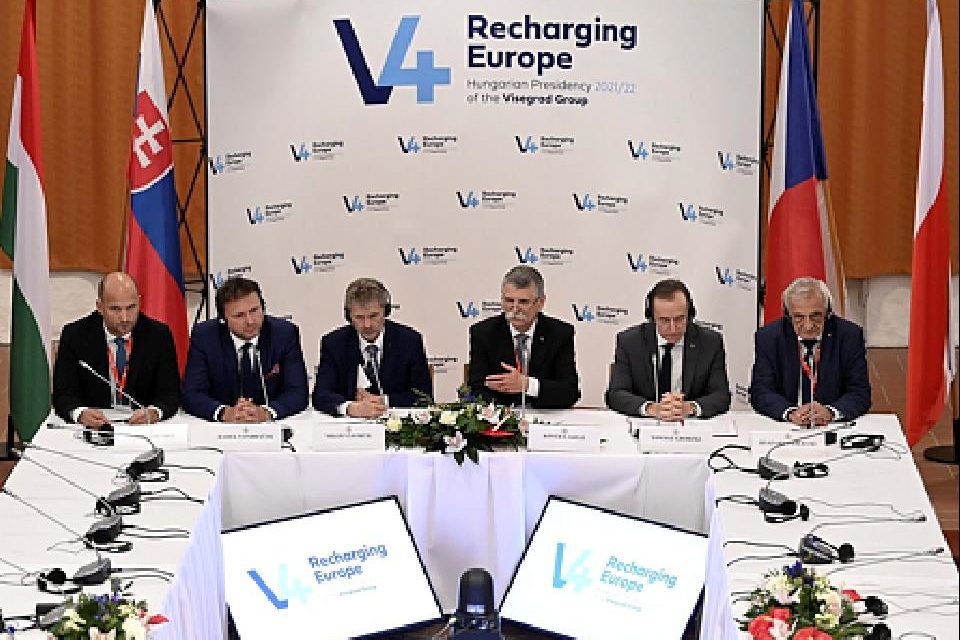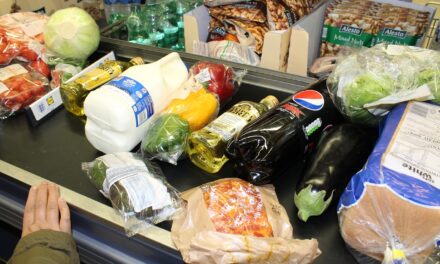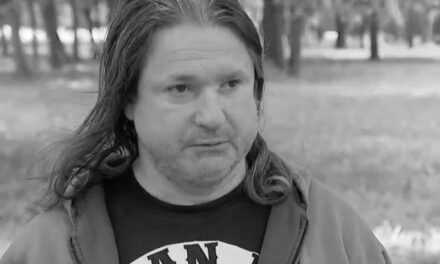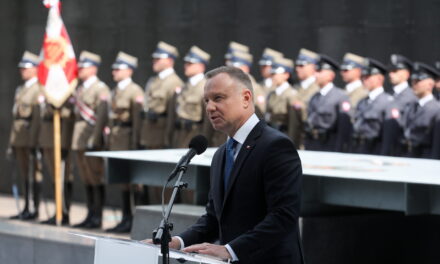The President of the National Assembly called the common goal of the Visegrad countries the achievement of the European Union becoming more competitive, more efficient, and stronger in the ever-increasing global competition. László Kövér said at Thursday's meeting of the V4 Speakers in Visegrád that they agree that the EU has no alternative for any country.
László Kövér spoke at the joint press conference at the end of the V4 Speakers' Conference (Slovakia, Czech Republic, Poland and Hungary) that the first item on the agenda of the meeting covered the future of Europe, the topic of values and interests. In this regard, he said: the future of the European Union is not the same as the future of Europe. The debate, the series of consultations that the EU started, is about the future of Europe, so the Hungarian government would like the Southeast European countries to formally participate in this debate.
As the second item on the agenda, the President of the Parliament mentioned the experiences of the V4 Plusz cooperation in the past years, what kind of cooperation can be formed with partners inside and outside the EU, awaiting accession, or outside the EU.
He also mentioned that the conference of the speakers of the Visegrad and Southeast European countries will be held in the Parliament on Friday, for the tenth time, at which they will urge the institutions of the European Union to speed up the accession process of the Southeast European countries. The meeting will be attended by Prime Minister Viktor Orbán and Olivér Várhelyi, the Commissioner responsible for neighborhood and enlargement policy of the European Commission.
Gábor Grendel, the vice-president of the Slovak parliament, spoke about the fact that each state has slightly different priorities, but there are areas that connect the countries. He added that the most sensitive value in Slovakia today is truth, justice and the desire to restore people's trust in the rule of law.
The Slovak politician said that three areas have been identified that connect the Visegrad countries: the first is security, as they are in a collision zone as a transit state for illegal migration, the second common cause is the EU integration of other states, and the third is the common agricultural policy. He put it this way: if they could overcome the pressure of forty years of totalitarian regimes to change their values, "then they can overcome everything".
Radek Vondrácek, the president of the Czech House of Representatives, reminded that
the V4s have experienced thirty years of growth since the regime change.
As our countries grow, so does our ambition to be heard more. We want to be part of a strong Europe, with a strong voice, he declared. He said that it would be a tragedy for entire generations if this union of states were to suffer some kind of trouble, and it is considered desirable that the voices of the Visegrad countries be heard in the discussions. He called it necessary to expand the union with the South-Eastern European countries, if the EU does not do this "someone else will take our place".
Milos Vystrcil, the president of the Czech Senate, spoke about solving the problems within the EU and said: There is no need to pretend that we are a little bit outside the Union. Let's actively strive to convince others of our own point of view, he urged.
He expressed the opinion that the V4s should work on improving their competitiveness. He considered it important to support Ukraine's and Southeast European countries' efforts to join the European Union, and set the goal of "remaining the freest and most democratic community in the world."
Tomasz Grodzki, the president of the Polish Senate, said that there was complete agreement that the Eastern Partnership and the Western Balkans' accession to the EU should be given priority if these countries fulfill the conditions of integration. He added that in order to promote expansion, the V4 must share their experiences with the countries that wish to join.
Ryszard Terlecki, the vice-president of the Polish Sejm, emphasized solidarity, legality, respect for the values of the V4 countries and the need for the openness of the European Union. In his view, it is part of solidarity that the votes of the member states have the same weight. He stated that they expect more legality from the union. The organization and its institutions cannot avoid the principles contained in the basic treaty, because the EU is built on them. The European Union must understand that in this part of the continent there are elements that belong to our self-identity and independence. Such traditional values, he added, "do not fit with the customs revolution they are trying to force on us". In Ryszard Terlecki's opinion, the union should be open to the whole of Europe, and the countries wishing to join should be provided with a precise timetable.
The community of Visegrad countries represents economic and political value, and their weight must be reckoned with throughout Europe, the Polish politician emphasized.
Source: Pest Boys












